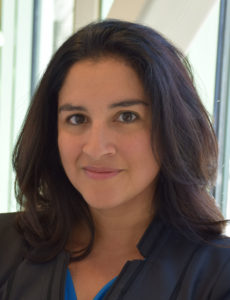Eden Medina is Associate Professor of Science, Technology, and Society at MIT. Her work uses technology as a means to understand historical processes and she combines history, science and technology studies, and Latin American studies in her writings. Her current book project, Bones and Lives: Making and Unmaking Truth After Dictatorship (Duke University Press, under contract), studies how nations use science and technology to address histories of dictatorship and state violence and how science and technology intertwine with processes of truth, justice, and repair. More broadly her research studies the history of science and technology in Latin America and the ways that political projects shape, and are shaped by, technologies such as computers.
Medina is the author of Cybernetic Revolutionaries: Technology and Politics in Allende’s Chile (MIT Press, 2011), which won the Edelstein Prize for outstanding book in the history of technology, the Computer History Museum Prize for outstanding book in the history of computing, and the Book Prize of the Recent History and Memory Section (honorable mention) of the Latin American Studies Association. Her co-edited volume Beyond Imported Magic: Essays on Science, Technology, and Society in Latin America (MIT Press, 2014) received the Amsterdamska Award from the European Society for the Study of Science and Technology.
In addition to her books, she has published on topics as diverse as big data and algorithmic regulation, human rights, computer science education, and the relationship of technology and politics. She is the recipient of the IEEE Life Members’ Prize in Electrical History awarded by the Society for the History of Technology for the best paper of the year in electrical history.
Medina’s work has been supported by the National Science Foundation, Social Science Research Council, American Council of Learned Societies, Mellon Foundation, and Charles Babbage Institute, and she is the recipient of two NSF Scholars Awards. She an affiliated fellow of the Information Society Project at Yale Law School, member of the academic council of the AI Now Institute, editorial board member of Hispanic American Historical Review, and executive council member of the Society for the History of Technology. Previous appointments include serving as a Fulbright Specialist in Engineering Education and directing the Rob Kling Center for Social Informatics at Indiana University.
Before coming to MIT, Medina taught at the Indiana University School of Informatics, Computing, and Engineering for fourteen years. She holds an undergraduate degree in electrical engineering from Princeton University, a Master in Studies of Law from Yale Law School, and a Ph.D. in the history and social study of science and technology from the MIT HASTS Program.
